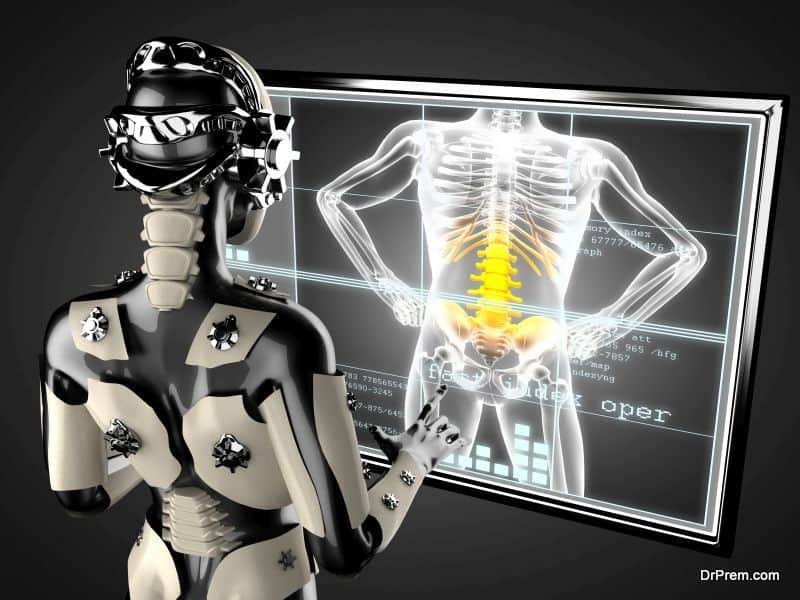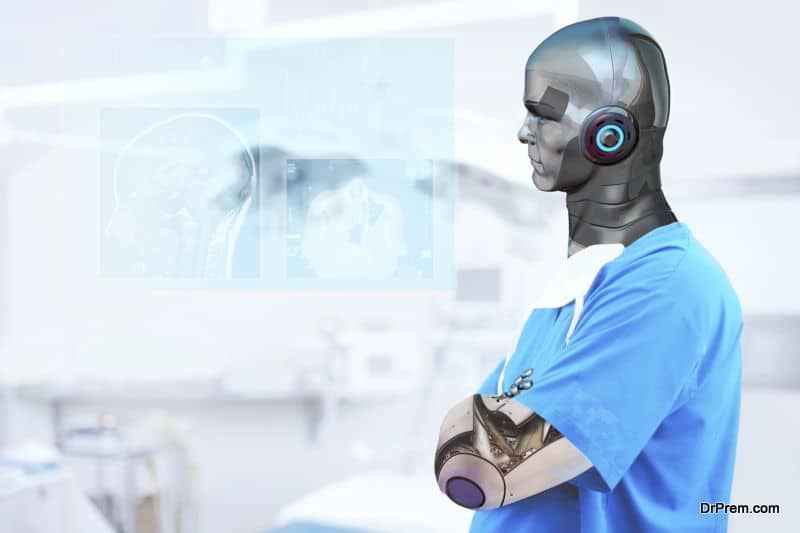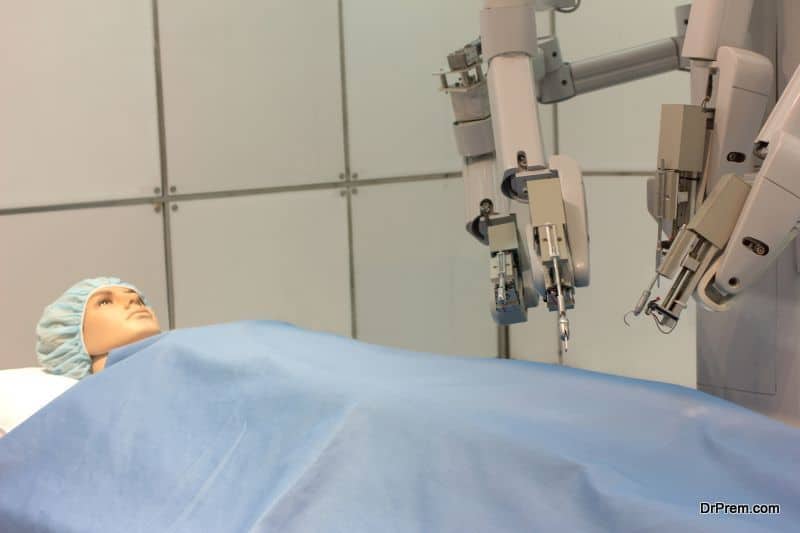The potential of Artificial Intelligence (AI) in reshaping the future global healthcare is unimaginable especially in a scenario when rising treatment costs, unprecedented waiting times and poor doctor to patient ratio is taking a toll on the global health.
A survey from the US healthcare sector reports the following contributory roles of AI to bring out notable transformations:
- Machine Learning 77%
- Robotic automation 61%
- Institutionalization of enterprise knowledge using AI 59%
- Cognitive AI led processes or tasks 50%
- Automated predictive analytics 47%
Global healthcare is slowly embracing AI technology to enable a better cost effective patient experience and reduce the cost and operational inefficiencies of health organizations. Let us have a deeper insight on what lies ahead in the coming few years in the global healthcare landscape:
- Potential cost savings in AI applications:
The estimated savings in 10 major applications are listed below:
- Robot assisted surgery: $40 billion
- Virtual nursing assistants: $20 billion
- Administrative workflow assistance: $18 billion
- Fraud detection: $17 billion
- Dosage error reduction: $16 billion
- Connected machines: $14 billion
- Clinical trial participant identifier: $13 billion
- Preliminary diagnosis: $5 billion
- Automated image diagnosis: $3 billion
- Cybersecurity: $2 billion
- Alleviate supply constraints and reduce cost:
Considering the rising shortage of primary healthcare providers, AI aided chatbots and virtual assistants are great tools to reduce the supply constraints through telehealth.
AI enabled virtual coaching would help to monitor more than 1000 patients simultaneously with improved care management techniques drastically cutting the treatment cost and improving patient experience.
- Aiding in clinical decision making:
A very important application of AI to lead the future is by assisting physicians enabling faster clinical decision making improving their operational efficiency. AI and machine learning are now being used to streamline hospital operations in operating theaters, emergency rooms and patient wards.
- Explaining lab results through robots:
One task of the docs will reduce. With the help of natural language processing (NLP), the robot will communicate with the patients explaining the results of lab tests like the most common blood tests. Other generic tests will be added later. Docs will have more time to focus on more serious matters related to the patient.
- Indicators detecting emotional intelligence:
AI based virtual assistants in wearables are emerging with newer trends making them emotionally intelligent to detect disturbance in a person’s moods by taking cues from the speech and gestures. These virtual assistants will be able to sense any danger related to heart disease, which can be life saving.
- Enabling behavior based security through machine learning:
Passwords and fingerprints for security would be obsolete. Instead, AI’s machine learning will bring in a new security system based on the user’s behavior of devices, how and where they are used. Users will need to add a biometric factor available from the devices. This would be considered as an authentication attribute by the risk engine and integrate the user to other devices used by him/her.
- Improved cost effective diagnosis in a population:
Professionals are now using AI to detect tuberculosis from X ray plates. Approximately 10.4 million people suffered from TB in 2016 resulting in 1.8 million deaths. The AI aided solution would interpret the radiographs of remotely located patients, especially in developing nations, and provide timely treatment solutions to them. This is set to improve the accuracy in remote health monitoring saving more lives.
- Better clinical documentation leading to improved care management:
Clinical documentation is a big botheration in present healthcare sector. Deep learning and natural language processing in AI can improve patient care by spotting specific indicators amidst the voluminous electronic health records and alert the physicians in case any data is missing or requires clarification.
The implementation of tools has already showed remarkable improvement in following domains:
- Achieved a 14% improvement in case mix index
- 98% rise in physician’s response rate
- $12.8 million increase in reimbursement rates.
Besides this, AI would help to drastically reduce adverse drug events and related deaths and accidental hospital infections, the two major areas causing significant fatalities.
Though AI shows a promising future in healthcare but that is also not without challenges. Lack of financial resources, in-house knowledge and skills, and also lack of clarity in its cost effectiveness are big barriers to overcome before AI gets embedded in the DNA of global healthcare.









